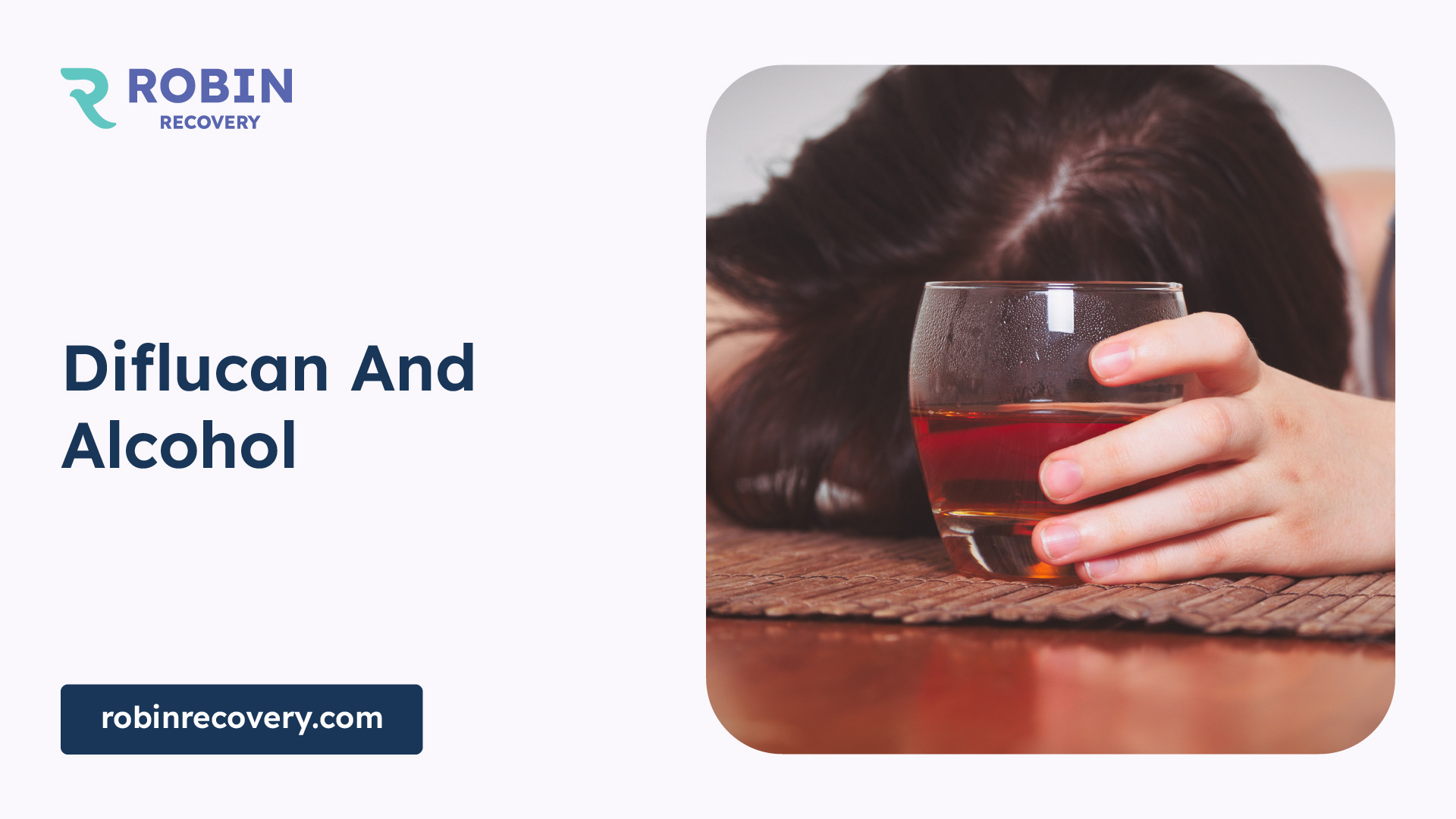Diflucan And Alcohol

Alcohol Consumption with Diflucan
Understanding the interactions and risks associated with combining alcohol and medications, such as Diflucan, is crucial to maintaining optimal health and ensuring the effectiveness of prescribed treatments. This section delves into the possible effects of consuming alcohol while taking Diflucan, focusing on how this combination can impact liver function.
Interactions and Risks
While it is considered safe to have a moderate amount of alcohol with a single dose of fluconazole (150 mg), there are no known interactions between alcohol and fluconazole [1].
Additionally, mixing alcohol with Diflucan can lead to adverse effects such as stomach pain, nausea, vomiting, headache, and flushing. It is strongly advised to avoid consuming alcohol during Diflucan treatment [2]. Moreover, combining alcohol with Diflucan may influence the gut environment and change levels of organisms, potentially exacerbating infections like Candida.

Effects on Liver Function
The liver plays a critical role in the metabolism of both alcohol and Diflucan. As such, excess consumption of alcohol while on Diflucan can lead to an increased burden on the liver, potentially resulting in impaired liver function. This is particularly concerning for individuals with existing liver conditions or those at risk of liver disease.
Furthermore, both alcohol and Diflucan are metabolized in the liver, and consuming them together can lead to increased concentrations of both substances in the body. This can exacerbate side effects and potentially interfere with the effectiveness of the medication. Therefore, it is generally recommended to avoid alcohol consumption while taking Diflucan.
In conclusion, while it may be safe to consume a moderate amount of alcohol while taking a single dose of Diflucan, it is crucial to understand the potential risks and side effects. Always consult with a healthcare professional before mixing any medication with alcohol to ensure safe and effective treatment.
Understanding the Interaction
When it comes to the interaction between diflucan and alcohol, it's essential to understand the factors that influence this combination and the medical recommendations surrounding it.
Factors Influencing Interaction
The interaction between diflucan and alcohol can be influenced by several factors. While it is considered okay to have a drink of alcohol with one dose of fluconazole (150mg) as there are no known interactions between alcohol and fluconazole, moderation is always advised when consuming alcohol [3]. However, consuming alcohol while taking Diflucan can increase the risk of certain side effects such as liver function impairment and altered efficacy of the medication [1]. Furthermore, mixing alcohol with Diflucan can lead to adverse effects such as stomach pain, nausea, vomiting, headache, and flushing.
Another factor to consider is that combining alcohol with Diflucan may influence the environment in the gut and change levels of organisms, potentially worsening infections like Candida.
Medical Recommendations
Based on these potential interactions and risks, medical professionals generally recommend avoiding alcohol consumption while taking Diflucan [1]. This precaution helps to ensure the medication's efficacy and minimizes the risk of adverse side effects.
It's crucial to consult with a healthcare provider for personalized advice based on individual health conditions and the specific dosage of Diflucan. This guidance will help to optimize the effectiveness of the medication and minimize potential risks. Remember, every individual is unique, and what works for one person may not work for another. Therefore, it's essential to obtain professional medical advice when considering alcohol consumption while taking Diflucan.
Potential Side Effects
When exploring the topic of 'diflucan and alcohol', it's important to be aware of potential side effects that may arise due to the interaction of these two substances. The side effects can range from mild discomfort to more severe symptoms, depending on several factors such as the amount of alcohol consumed and individual reactions to the medication.
Stomach Discomfort
One of the main side effects that can occur when alcohol is mixed with Diflucan (fluconazole) is stomach discomfort. Both substances can impact the liver, and using them together may place additional strain on this vital organ. This discomfort can manifest as stomach pain and can vary in intensity based on individual factors and the amount of alcohol consumed [4].
Due to the potential for increased discomfort, it is strongly advised to avoid consuming alcohol during Diflucan treatment.
Nausea and Vomiting
Another common side effect of mixing alcohol with Diflucan is nausea and vomiting. These symptoms can be exacerbated by the interaction of the two substances, especially as alcohol is a central nervous system depressant that can affect the body's ability to metabolize medications properly.
The severity of these side effects can vary depending on individual factors and the amount of alcohol consumed.
In conclusion, it's important to consider the potential side effects of mixing alcohol with Diflucan. If you're currently taking Diflucan or considering starting treatment, it's advisable to avoid alcohol consumption to minimize the risk of these side effects. Always consult with a healthcare provider for personalized advice and recommendations.
Precautions and Considerations
When considering the interaction between diflucan and alcohol, it's crucial to keep in mind the potential risks and side effects. Both substances can have a significant impact on the body, particularly the liver, which plays a critical role in metabolizing medications. It's essential to take precautions to safeguard health and ensure the effectiveness of the treatment.
Tips for Safe Consumption
Consuming alcohol while taking Diflucan can increase the risk of certain side effects, such as stomach pain, nausea, vomiting, headache, and flushing. It's strongly advised to avoid consuming alcohol during Diflucan treatment [2]. Alcohol can impair liver function and may affect the metabolism of Diflucan, potentially altering its efficacy or increasing the risk of side effects.
To minimize these risks, consider the following tips:
- Avoid alcohol: The simplest way to avoid potential interactions and side effects is to abstain from alcohol while undergoing Diflucan treatment.
- Monitor your health: Pay attention to any changes in your health that might indicate a problem, such as increased stomach pain or nausea.
- Consult your doctor: Always discuss with your healthcare provider if you plan to consume alcohol during treatment. They can provide personalized advice based on your health status and medication dosage.
Non-Alcoholic Alternatives
To ensure safety when taking Diflucan, it's beneficial to consider non-alcoholic alternatives. These can help satisfy the desire for a beverage without posing the risks associated with alcohol consumption. Non-alcoholic alternatives can range from simple options like water, tea, or coffee, to more elaborate mocktails that mimic the flavors of traditional alcoholic drinks without the alcohol content.
Choosing non-alcoholic alternatives can help maintain the effectiveness of Diflucan treatment, while avoiding potential side effects and interactions. Always make sure to check with your healthcare provider if you're unsure about any aspects of your medication or treatment plan.
Impact on Efficacy
The interaction between Diflucan and alcohol not only leads to potential side effects, but it may also affect the effectiveness of the medication. This section discusses the implications of this interaction on the efficacy of Diflucan treatment.
Medication Effectiveness
The efficacy of Diflucan in treating fungal infections can be compromised when mixed with alcohol. Alcohol can interfere with the ability of Diflucan to control and eliminate the infection. This interference can prolong the treatment duration and possibly worsen the infection.
According to Northstar Behavioral Health, consuming alcohol while taking Diflucan may influence the environment in the gut and change levels of organisms, potentially worsening infections like Candida.
Moreover, alcohol can affect liver function and the metabolism of drugs, including Diflucan. This impact can alter the efficacy of Diflucan or increase the risk of side effects.
Risk of Treatment Disruption
The consumption of alcohol while on Diflucan treatment increases the risk of experiencing adverse effects such as intense stomach pain, liver disease, or severe allergic reactions in rare cases [2].
Such side effects can disrupt the treatment process, as they may lead to discontinuation of the medication or necessitate additional medical intervention. Furthermore, the severity of these side effects can vary depending on individual factors and the amount of alcohol consumed [6].
In conclusion, while Diflucan is a crucial medication in treating certain fungal infections, the consumption of alcohol during treatment can decrease its effectiveness and increase the risk of adverse side effects. It's advisable for patients to abstain from alcohol while undergoing Diflucan treatment to ensure optimal results and minimal discomfort.
Consultation and Guidance
In the context of alcohol consumption while taking Diflucan, consultation with healthcare providers and the application of their advice is of utmost importance.
Healthcare Provider Advice
Consulting with your doctor or healthcare provider before making any decisions regarding alcohol consumption while taking Diflucan is crucial. They possess the expertise and knowledge to assess your specific situation and provide personalized guidance. It is their advice that will help mitigate potential risks and ensure your health remains the top priority.
Medical professionals generally recommend avoiding alcohol consumption while taking Diflucan to prevent potential interactions and an increased risk of side effects. The consumption of alcohol while on medication such as Diflucan is a matter of serious concern, and as such, should be approached with caution [5].
Personalized Recommendations
Each person's health conditions and circumstances are unique, and so it is important to receive personalized advice from a healthcare provider. They can consider factors such as dosage, treatment duration, sensitivity to alcohol, and other medical conditions while providing guidance. This personalized advice goes beyond general guidelines, and can be pivotal in making the right decisions for your health.
In conclusion, when it comes to the topic of 'diflucan and alcohol', careful consultation and adherence to personalized recommendations from healthcare providers are essential to ensure one's wellbeing. It is always best to prioritize health and follow the guidance provided by your healthcare team.
References
[1]: https://www.townsendla.com/blog/diflucan-alcohol
[2]: https://www.northstarbehavioralhealthmn.com/resources/diflucan-and-alcohol/
[3]: https://www.drugs.com/medical-answers/fluconazole-can-you-drink-alcohol-while-using-one-146854/
[4]: https://www.guardianrecovery.com/addiction-treatment/alcohol-abuse-addiction/mixing-alcohol-fluconazole/
